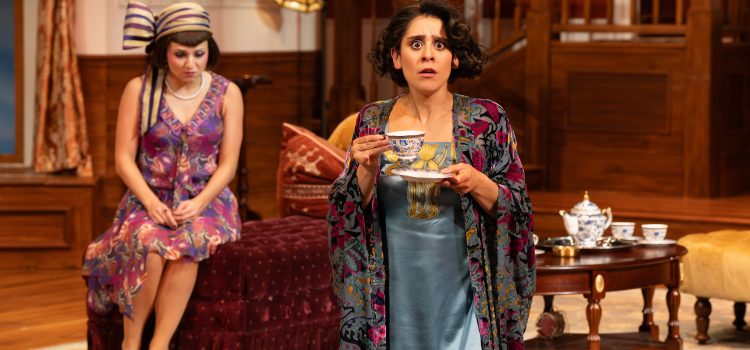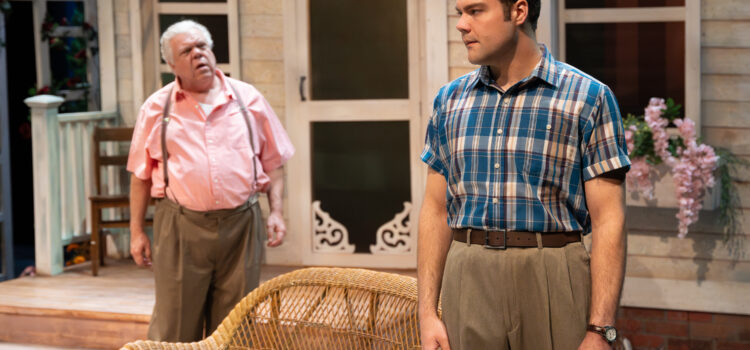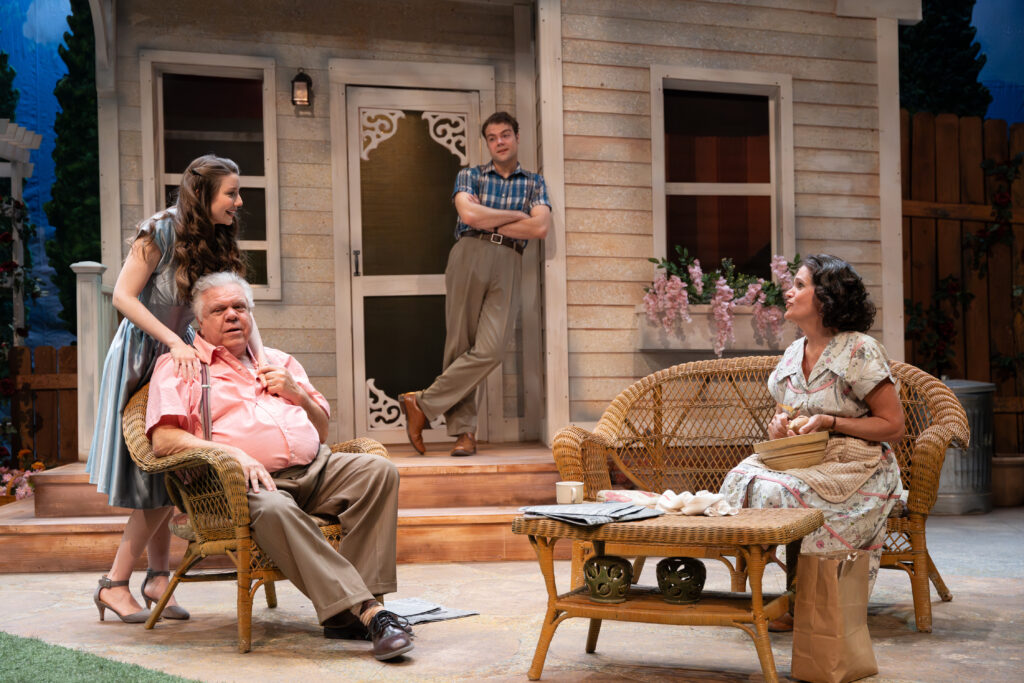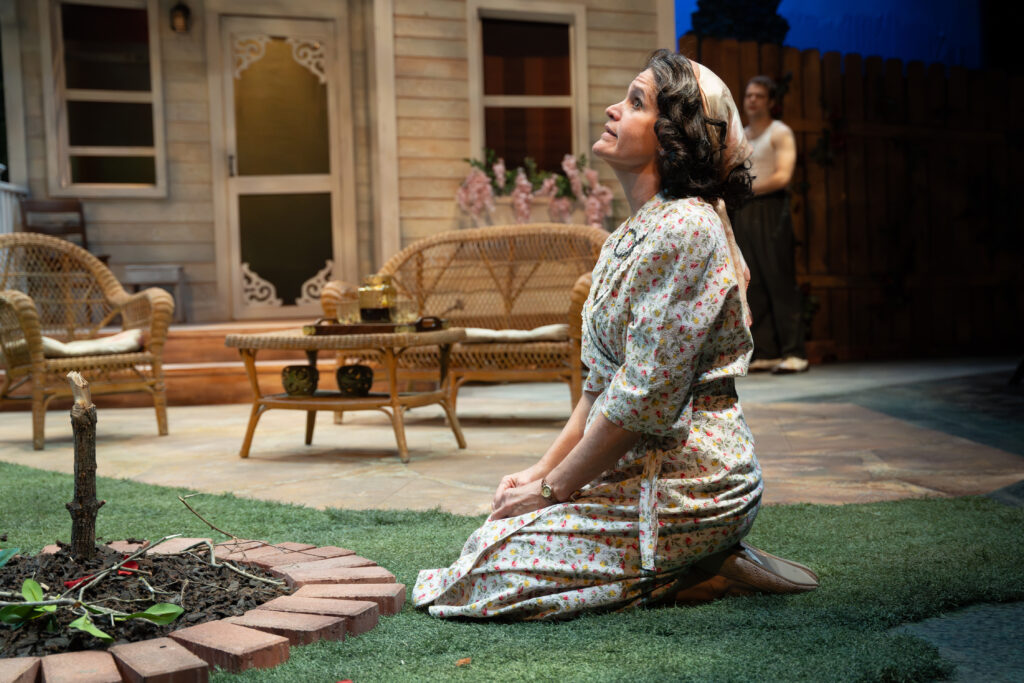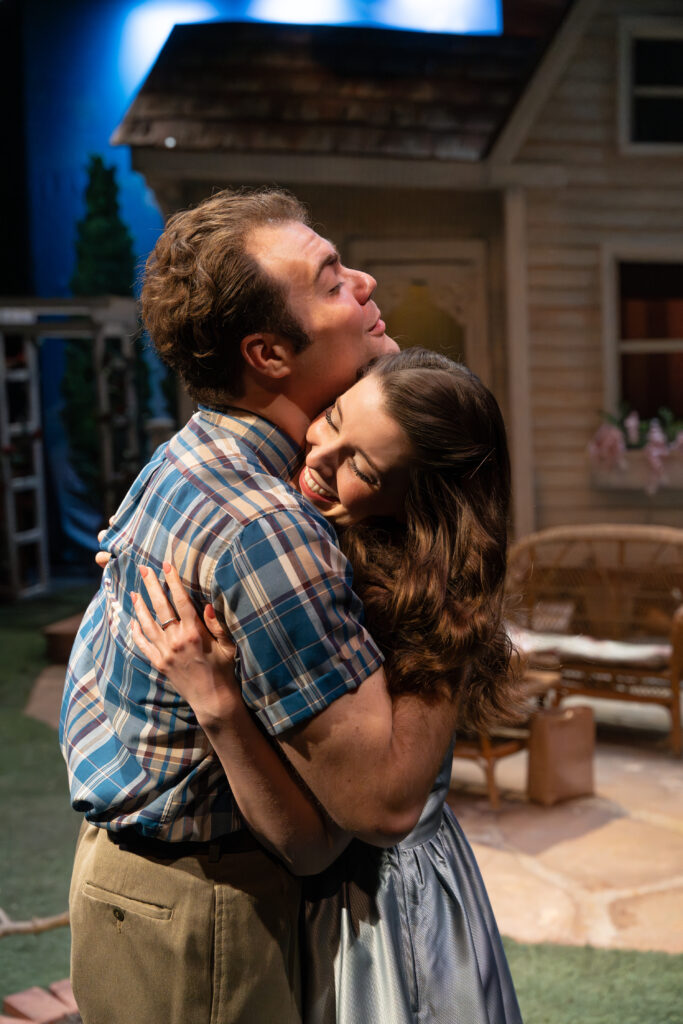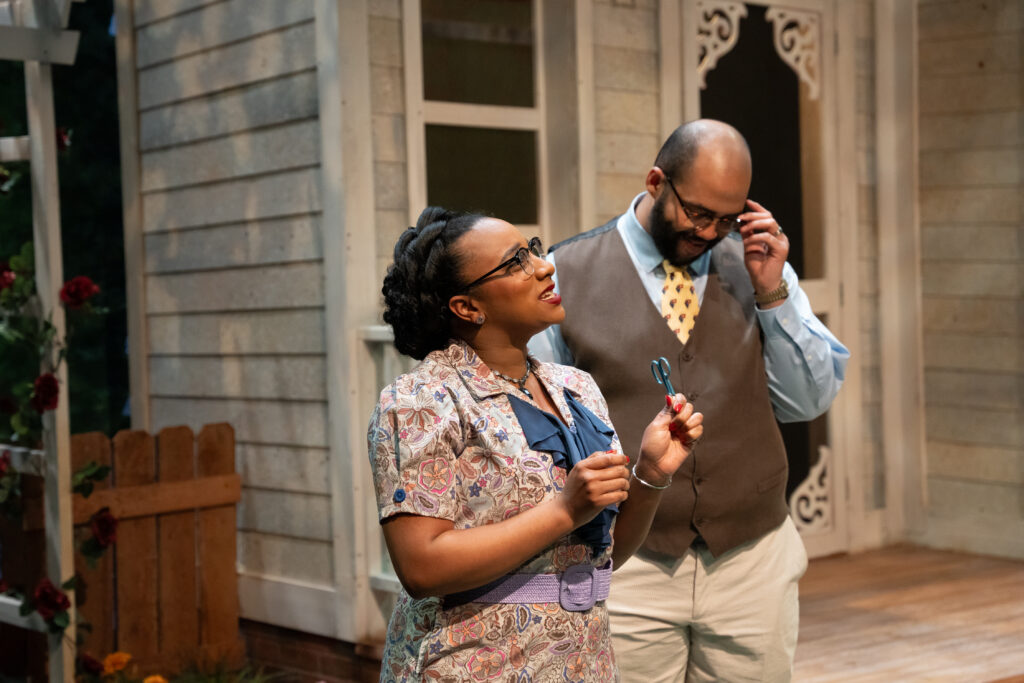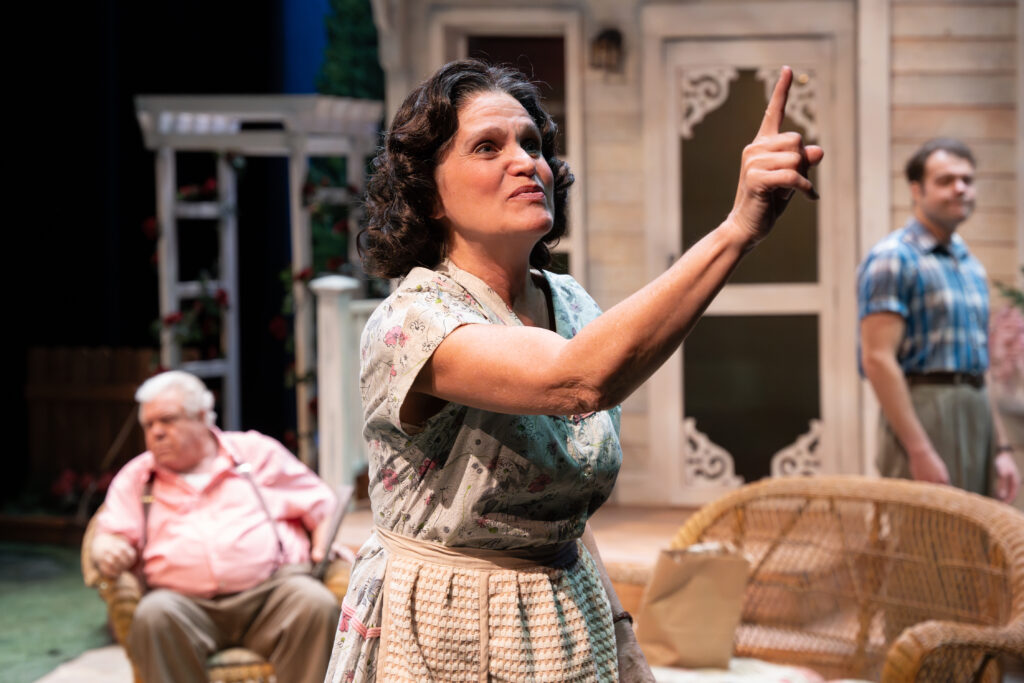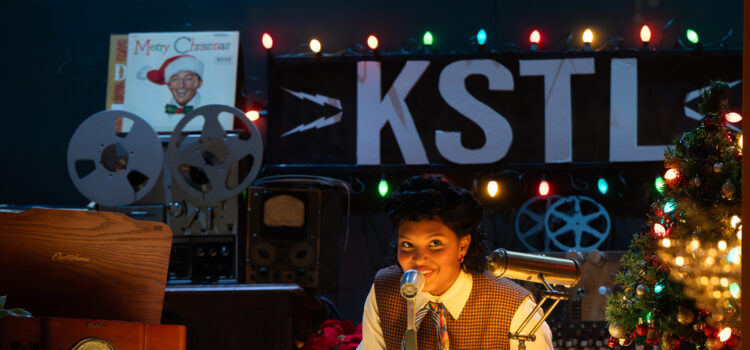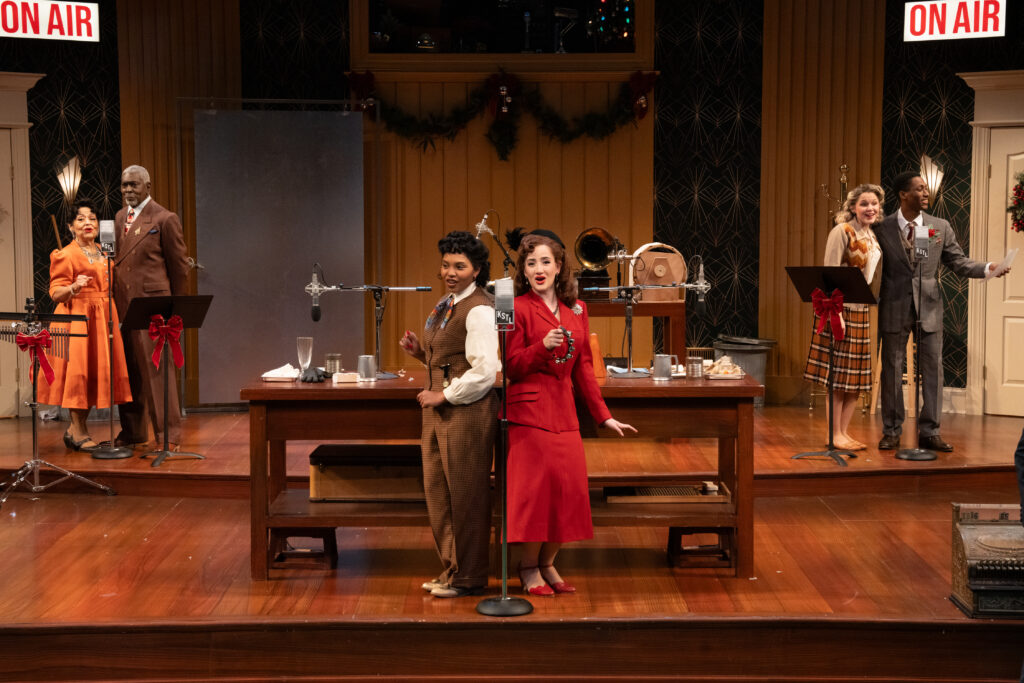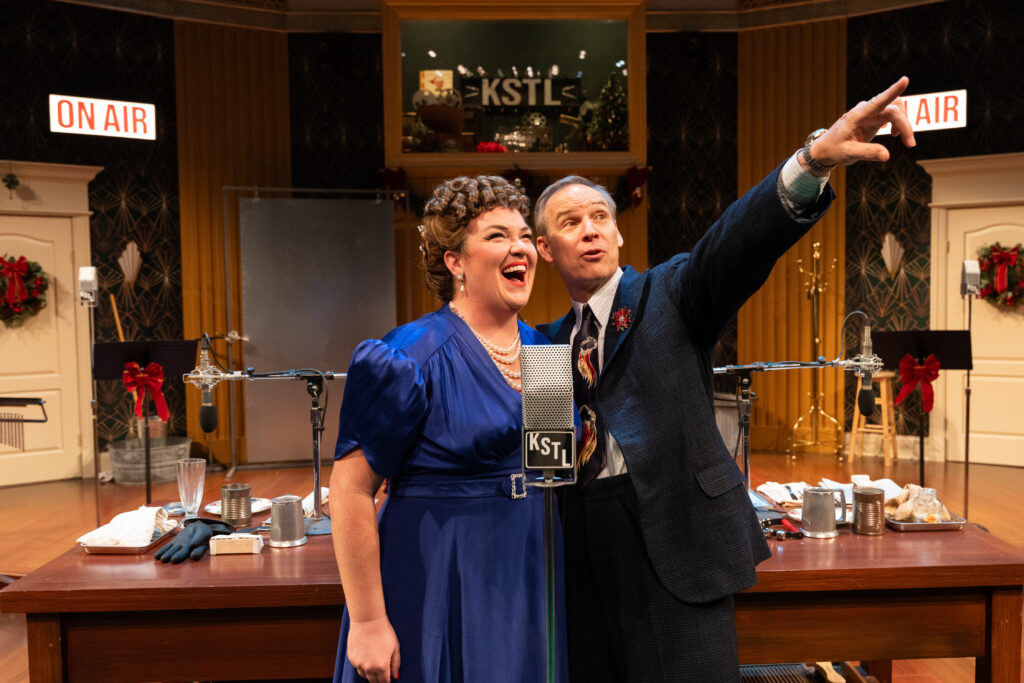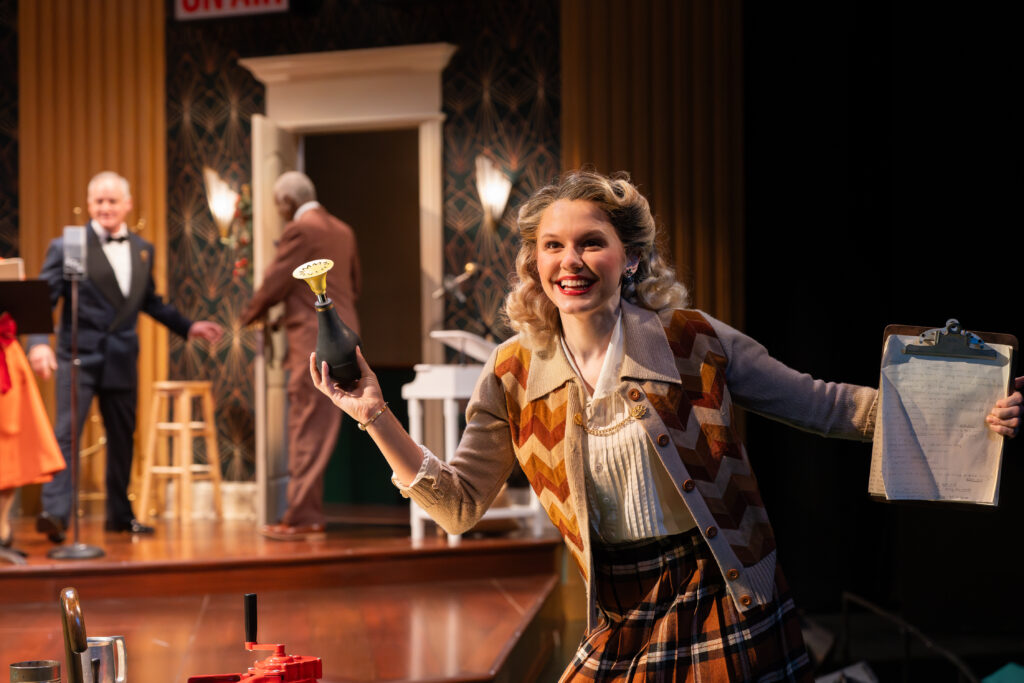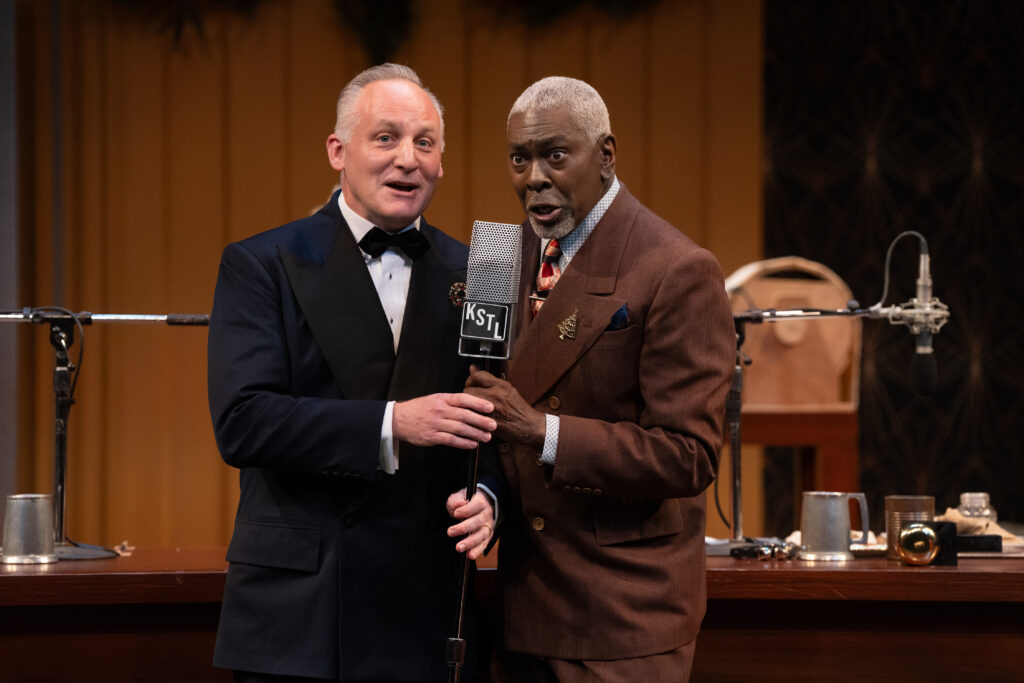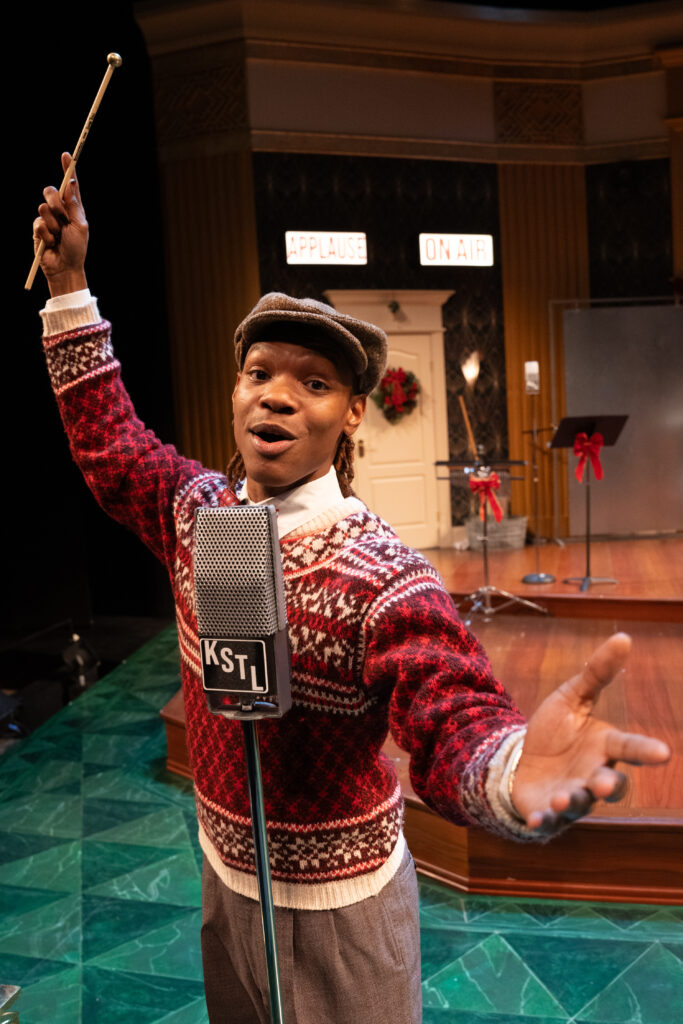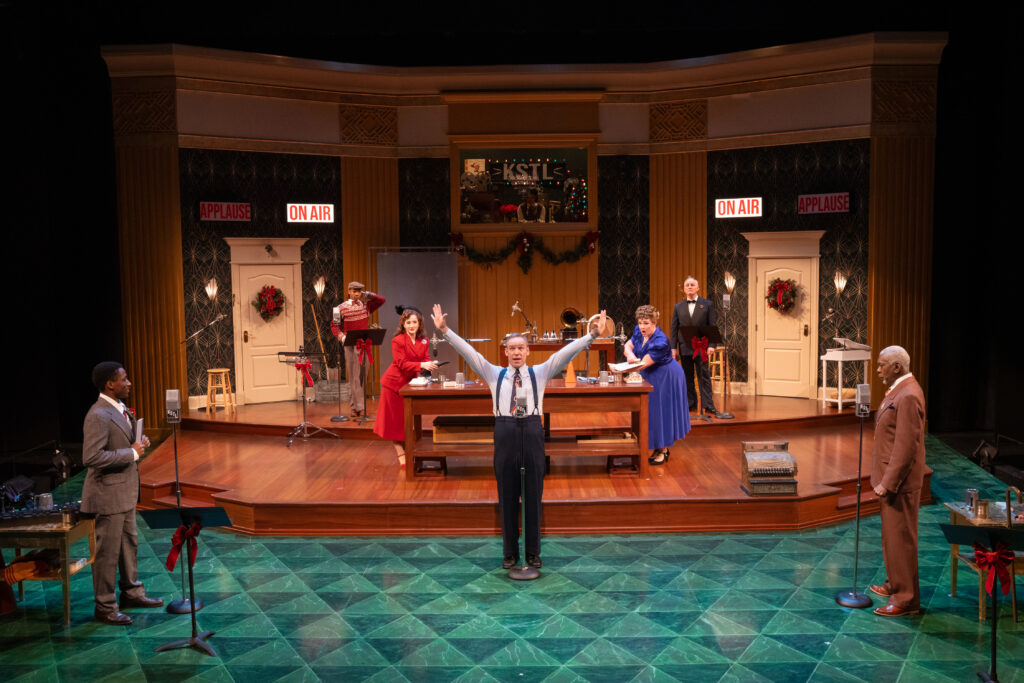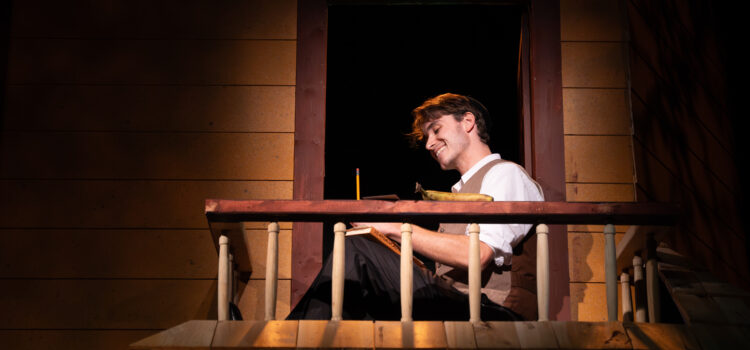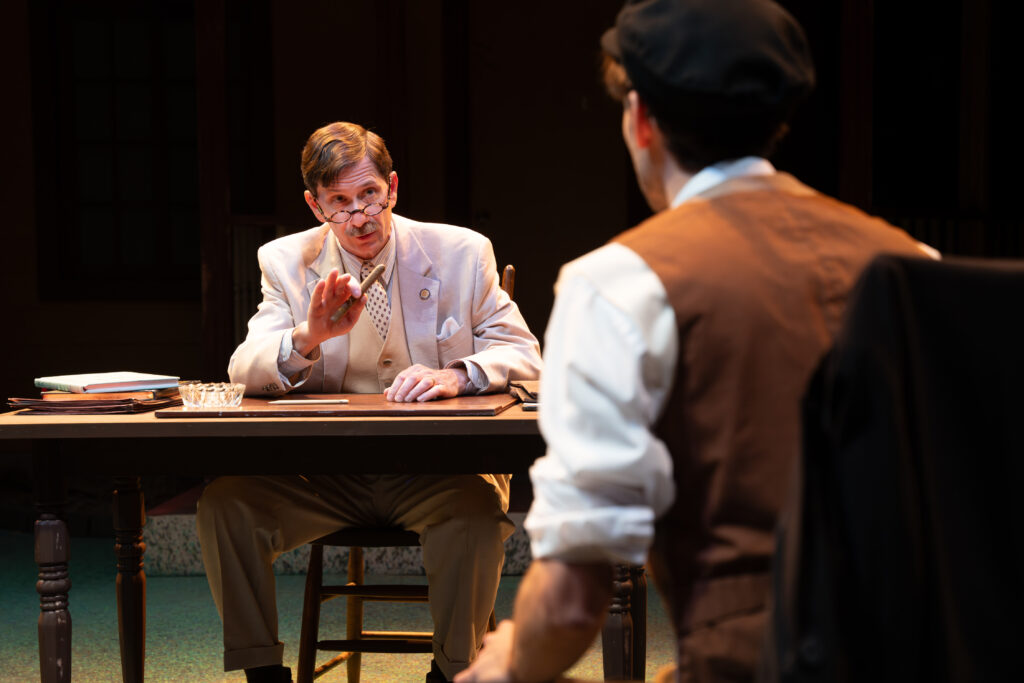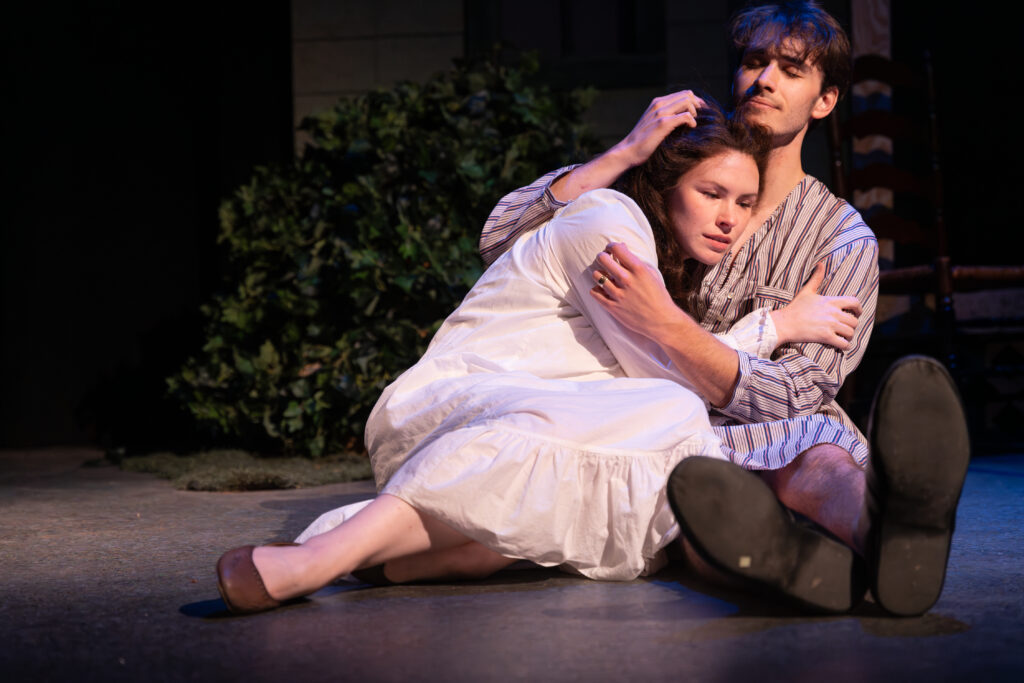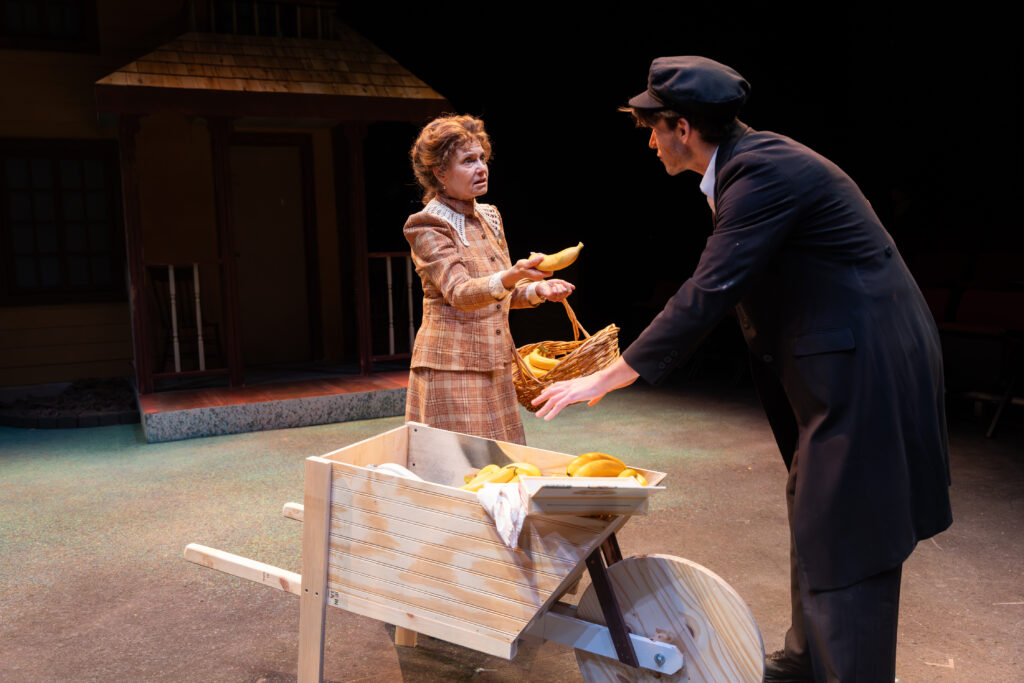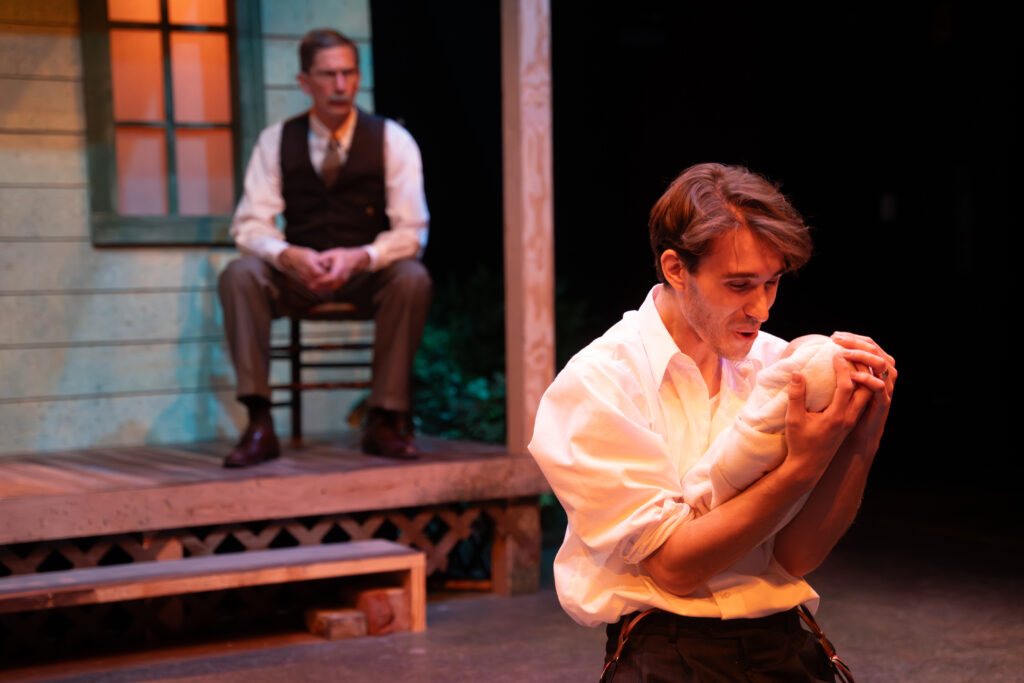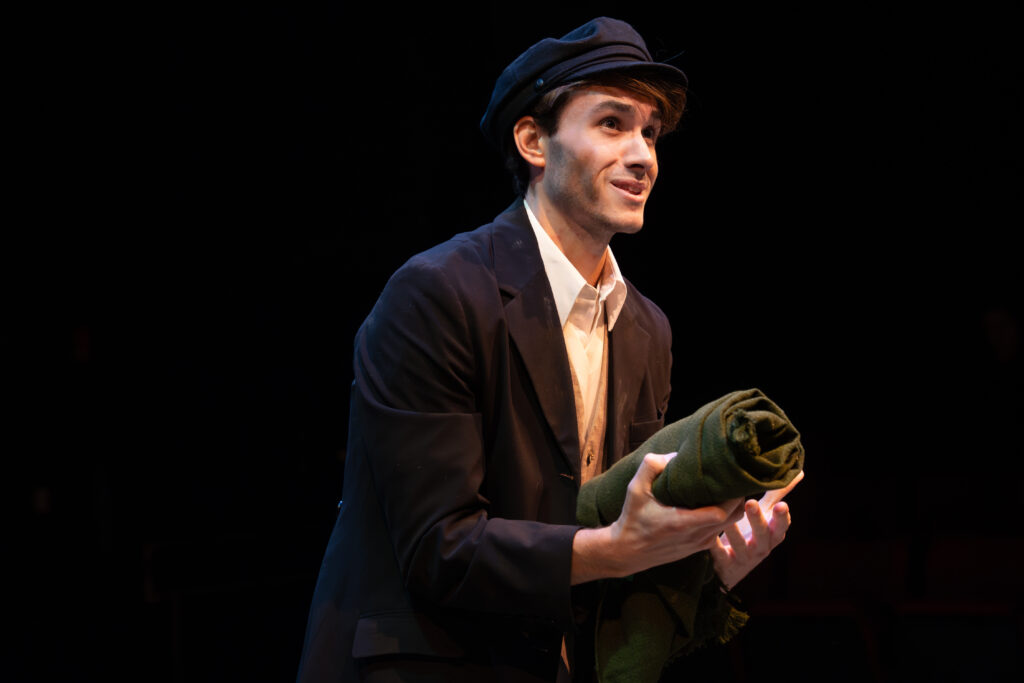By Lynn Venhaus
Sidesplitting hijinks ensue as a marital merry-go-round farce, “The Cottage,” spills the tea and twists a Noel Coward-esque comedy of manners for a female-forward finish.
Now playing through Sept. 28 on the Repertory Theatre of St. Louis’ mainstage, a splendid sextet puts the roar in this Roaring Twenties romp as they gamely carry on in a sophisticated upper-crust British setting.
They deftly deliver standard King’s English dialect – all those ‘darlings,’ ‘indeeds’ and ‘rathers’ – in crisp witty, and a tad cynical, manner (special shout-out to dialect coach Lauren Roth).
Sandy Rustin’s jaunty play effectively depicts complicated relationships among polite society, and the cast’s Swiss-watch timing and nimble silliness combine for a sparkling collaboration that shows off their verbal and physical dexterity. Their flair for slapstick is impressive, as is their limber body language.
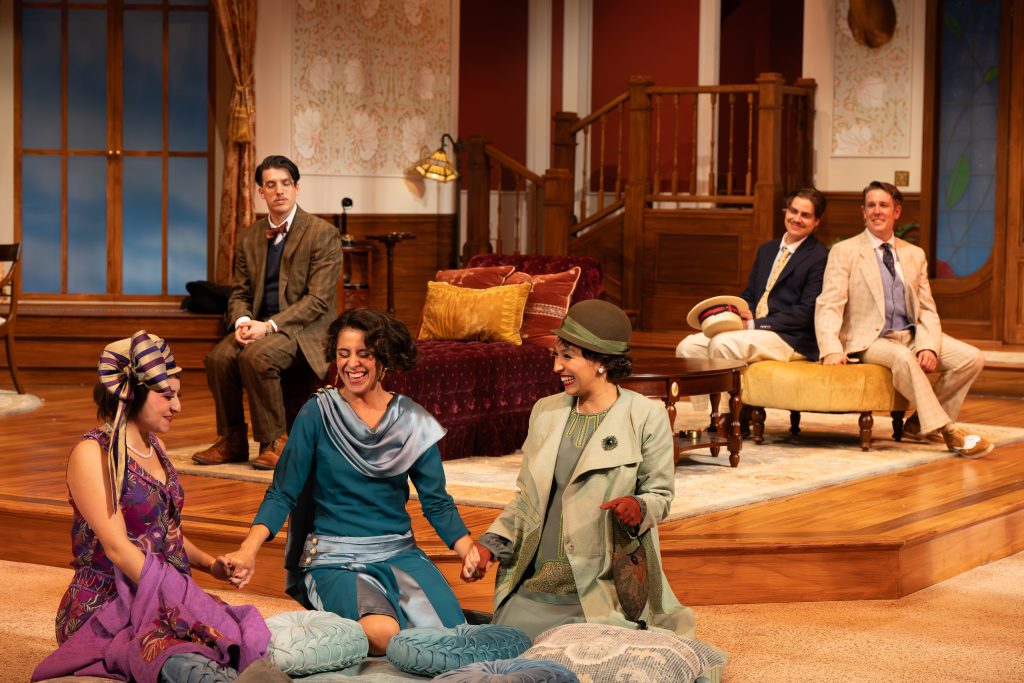
It all begins one sunny Monday morning in June 1923 at the Van Kipness matriarch’s tony countryside cottage, about 90 minutes outside of London. For seven years, Sylvia and Beau have enjoyed an annual tryst there.
Sylvia happens to be married to Beau’s stuffed-shirt brother Clarke. A hopeless romantic, she has impulsively told Clarke and Beau’s wife Marjorie of their affair so she can get her happily ever after.
That sets off a chain reaction where shocking truths are revealed, more characters are introduced, and doors lead to unexpected entrances and exits. These denizens of the smart set find their private lives upended, along with their carefully cultivated identities.
With this fashionable group, let’s just say love and marriage don’t go together like a horse and carriage, and things are not what they seem. As Coward famously said: “It’s discouraging to think how many people are shocked by honesty and how few by deceit.”
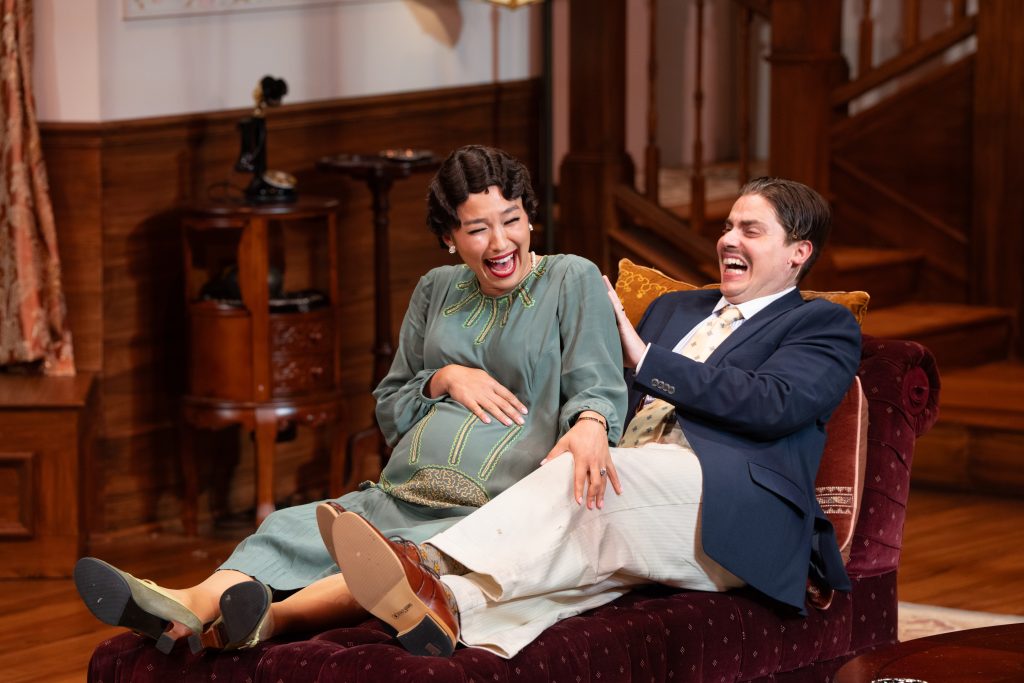
The remarkable ease with which this cast achieves synergy is a credit to the talents of Andrea San Miguel as the spirited and stylish Sylvia; Jordan Coughtry as the handsome but caddish Beau; Jihan Haddad as the ladylike Marjorie; St. Louis native Jack Dryden as buffoonish Clarke; Isa Venere as ditzy Dierdre; and Andres Enriquez as Richard, best described as a loose cannon.
Rustin, who wrote the hilarious play adaptation of the murder-mystery-comedy “Clue” based on the 1985 movie, is faithful to the British style of drawing-room comedies that skewered the manners and morals of high society – but only up to a point.
In a refreshing move, she has flipped the script on women only being in service to men in these throwback shows. You see the women emerge, speaking about their wants and desires, ultimately taking charge of their own lives.
It has more of a modern sense and sensibility – and most importantly, they get the last laugh. A charming live wire, San Miguel is the perfect embodiment for an awakening, a transformative journey for Sylvia, an intelligent woman stuck in stereotypes of the time.
However, besides her own stamp on Coward’s celebrated writing, Rustin injected the story with more than a month’s worth of soap opera confessions – and those juicy tidbits keep on coming. Must not forget Sam Matthews’ brief appearance as the gardener.

It’s best not to spoil more of the twisty turns the plot took as it unraveled, all at a swift pace. As details unfolded, anxiety ramped up, and rarely was anyone calm, cool and collected – all the better for zaniness.
Director Risa Brainin fluidly directed the chaos, making sure the action had a rhythm, and the well-cast ensemble maintained a pleasing tempo throughout. (Notable nod to casting director Delaney Piggins for assembling this finely tuned machine).
To emphasize their eccentric personalities, Brainin breezily blended them into the well-appointed set and ensured they each stood out when they were the focus.
One inspired segment involved Venere’s exaggerated acrobatic moves as an unconscious Dierdre is awkwardly handled by the others, reminiscent of classic Carol Burnett and Molly Shannon’s zesty physicality.
And this piggybacks on good-sport Haddad handling classy 8-months-pregnant Marjorie’s untimely gas-passing for more goofiness, which she managed with terrific finesse. (And loud guffaws and shrieks from the audience.)
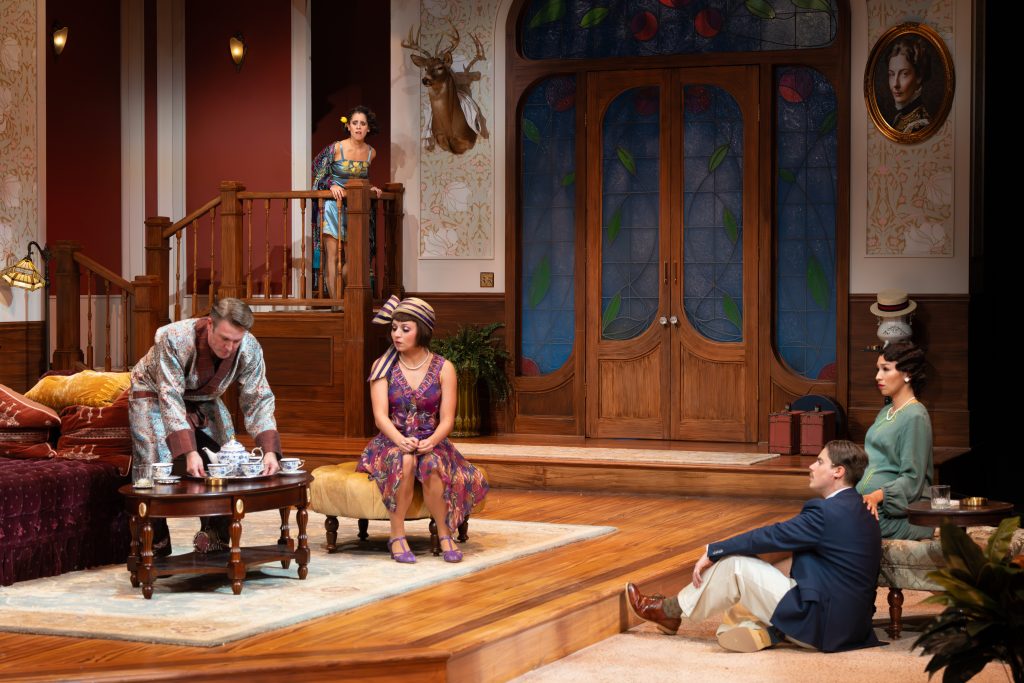
Brainin and scenic designer Robert Mark Morgan, ever mindful of architectural harmony, worked out a floor plan for maximum effect, as characters moved back and forth from the kitchen, the stairs leading to the bedrooms, and the guest room that was offstage, for the main action is in the elegant drawing room.
A focal point is a grand-scale front door with faux stained glass to complement the luxurious setting. Morgan’s exquisitely detailed set is the bee’s knees with its bespoke touches. Michael Klaers’ lighting design illuminates the bright space, with special attention to spotlighting Mama Van Kipness’ stern portrait hung in a prominent place.
Renee Garcia’s posh period costume designs are the cat’s pajamas, with sumptuous fabrics, fancy bathrobes, chic graceful designs, flattering colors, and tasteful tailored menswear and overcoats.
The wig and makeup design by Dennis Milam Bensie is attractive in vogue styles, well-suited to the characters.
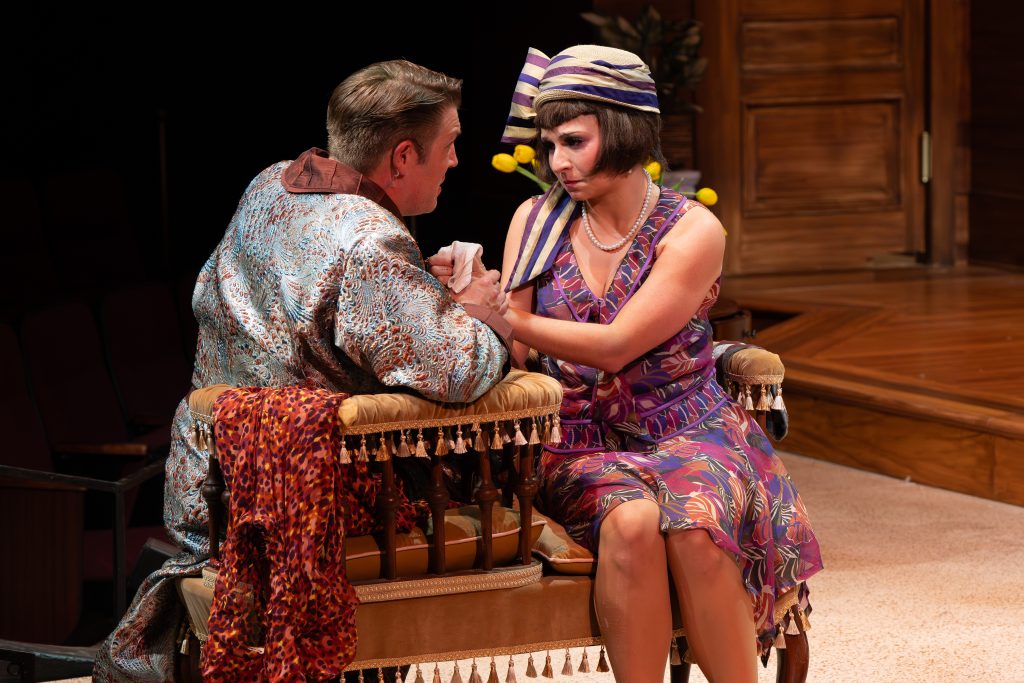
Amanda Werre’s exemplary sound design is a necessary mix of victrola music, shower sounds, a weapon discharge – and loud flatulence.
Noteworthy nods to fight director Paul Steger and intimacy director Jamie McKittrick, and to production stage manager Evangeline Rose Whitlock for their astute contributions
As delightful as the performers are and the production’s flawless execution, the running time could be shaved, at least 10 minutes in each act, so that Rustin’s points don’t seem as repetitive. It would help maintain the bubbly mood as the urbane story gets increasingly absurd.
The play is 2 hours, 15 minutes, including a 15-minute intermission.
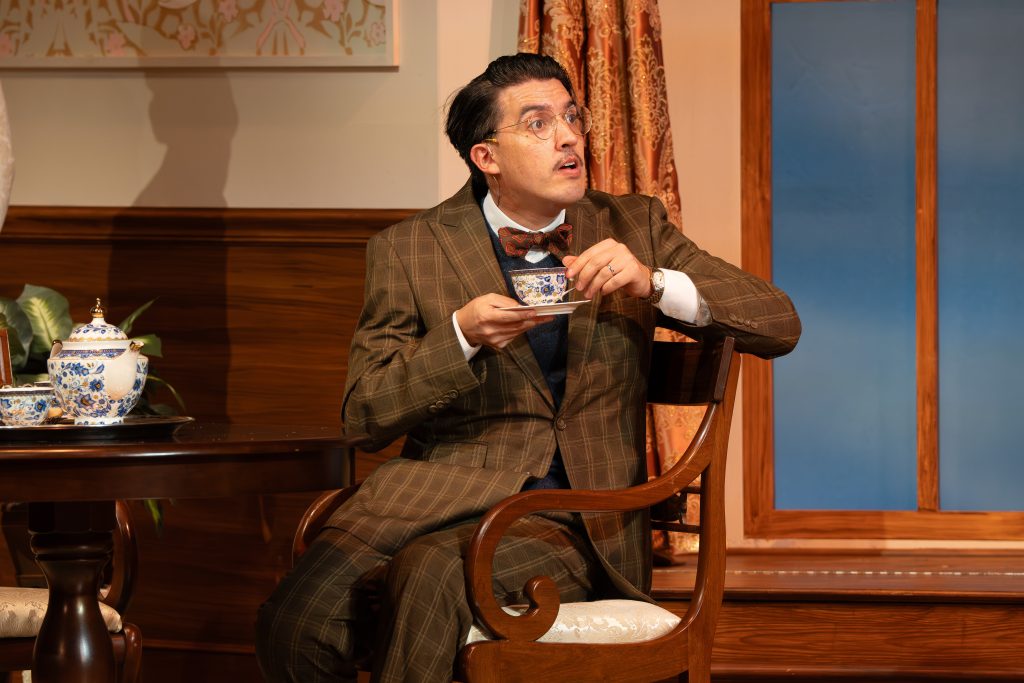
First produced in 2013 before regional productions, the play had a 2023 debut on Broadway directed by Jason Alexander that starred Eric McCormack, Laura Bell Bundy, Alex Moffat, Lilli Cooper, Dana Steingold and Nehal Joshi in a limited engagement for 111 performances.
The current cast appeared to be having a blast, so it’s easy to imagine how difficult it was to not crack up and keep their composure on stage and during rehearsal, let alone acquire the fleet moves and effortlessly deliver acerbic dialogue in a highly theatrical manner that reflected that era.
If madcap mischief and light-hearted entertainment are your cup of tea, you should plan a getaway to the Loretto-Hilton Center. Scandals are usually never this fun.
The Repertory Theatre of St. Louis presents “The Cottage” Sept. 3-Sept. 28 at the Loretto-Hilton Center on the campus of Webster University, 130 Edgar Road. For tickets or more information, visit www.repstl.org. The box office is available by calling 314-968-4925 and opens two hours prior to curtain time.
Post-show discussions follow the Sunday matinee at 2 p.m. Sept. 14 and the Wednesday matinee Sept. 18.
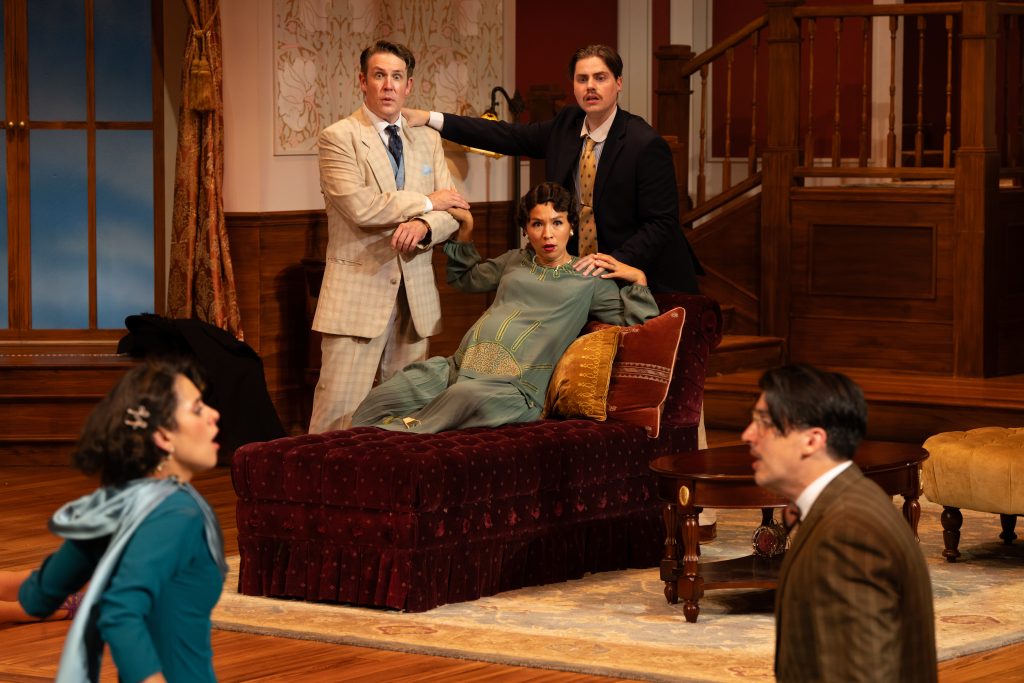

Lynn (Zipfel) Venhaus has had a continuous byline in St. Louis metro region publications since 1978. She writes features and news for Belleville News-Democrat and contributes to St. Louis magazine and other publications.
She is a Rotten Tomatoes-approved film critic, currently reviews films for Webster-Kirkwood Times and KTRS Radio, covers entertainment for PopLifeSTL.com and co-hosts podcast PopLifeSTL.com…Presents.
She is a member of Critics Choice Association, where she serves on the women’s and marketing committees; Alliance of Women Film Journalists; and on the board of the St. Louis Film Critics Association. She is a founding and board member of the St. Louis Theater Circle.
She is retired from teaching journalism/media as an adjunct college instructor.

